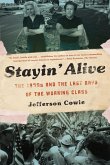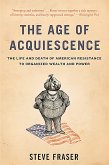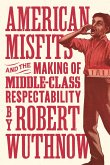A landmark volume that reveals a lively middle-class Egyptian culture during the first three centuries of Ottoman rule--a major departure from traditional studies focusing on the ruling/elite class rather than the popular masses. In fine detail, the author explores economic influences on culture during periods of plenty and poverty. She examines the bond between commerce and escalating literacy via the building of schools, the availability of cheap paper, and the proliferation of books. And she assesses coffeehouses, storytellers, and phantom plays as a principal circuit for the spread of oral middle-class culture. Drawing on published and unpublished sources, she unveils a full-fledged Cairene middle-class culture that bridges the gap between the salons ("majalis) of the elite and the common people. A major contribution to Egypt's cultural record, this book sets a high standard for work on the history of the Middle East.
Hinweis: Dieser Artikel kann nur an eine deutsche Lieferadresse ausgeliefert werden.
Hinweis: Dieser Artikel kann nur an eine deutsche Lieferadresse ausgeliefert werden.








